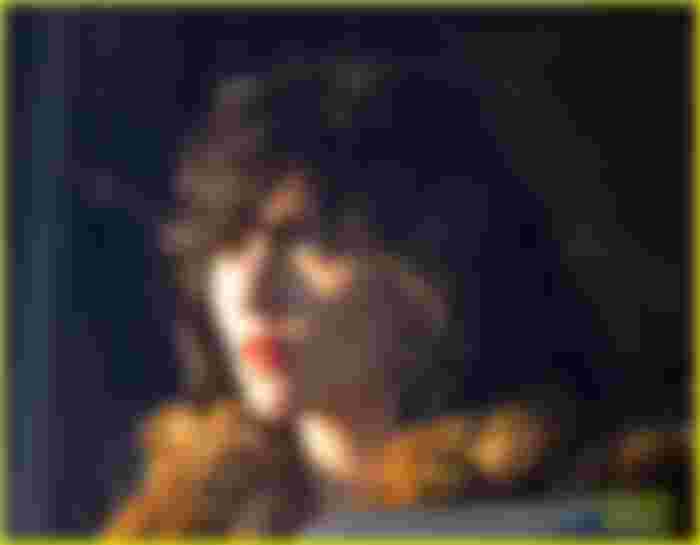The origins of psychological thrillers go back to 1960, and Michael Powell's Peeping Tom and Alfred Hitchcock's Psycho. Thus some of the noir films of the 1940s can also be categorized in this genre. But we can trace the psychological thriller genre to much earlier when Edgar Allan Poe, in his shocking and gothic writings, introduced the element of horror into the human mind.
In the 1990s, after the success of The Silence of the Lambs, the term "psychological trailer" referred to films about serial killers that had horror themes on an unpleasant scale. But the word psychological in this genre refers to mental health, or rather its absence in the characters of the film. Thus, a psychological thriller is a film that not only frightens you from within, but also engages your head and plays with your nerves, for better or for worse.
7-Black Swan

Darren Aronofsky is a filmmaker who like surreal attacks on the audience as a constant trick. The director has taken this path with the films Pi and Requiem for a Dream, But his best and strongest work in the psychological thriller genre was the 2010 film Black Swan. Natalie Portman, whose flawless performance in the film won her the Academy Award for Best Actress, plays Nina, a rising ballet star whose quest for perfection plunges her into the abyss of complete psychological collapse. Although Black Swan is set in a realistic setting, it gradually enters a strange and nightmarish realm that plays on Nina's repressed physical temptations and confronts her with incredible consequences.
6-Barton Fink

Often when we think of the Coen brothers and their penchant for different, surreal content, we think of influential comedy films, including popular and acclaimed films such as The Hudsucker Proxy and The Big Lebowski. However, the Coen brothers are able to use the same comedic approach to a more effective satanic work, as portrayed in their shocking 1991 film, which won them the Palme d'Or at the Cannes Film Festival and the Best Picture Award. The story of Barton Fink takes place in 1941, where Torturo plays an ambitious New York playwright who enters Hollywood but finds himself in a different film. But his efforts to control the helm of the film and the script, as well as the strange relationship that develops between him and his neighbor, lead Torturo to the abyss of madness.
5-Under The Skin

Jonathan Glaser's adaptation of Michael Fiber's novel does not usually fall into the category of psychological thrillers, and Under The Skin, after its release in 2013, became more of a dark science fiction drama with an erotic atmosphere. However, Under The Skin can be classified under the psychological thriller genre, as it focuses deeply on the vague and main character mentality of the story. Although the film does not take much effort to explain the events of the story clearly, this is what plays with the audience's brain. Scarlett Johansson plays an unnamed extraterrestrial woman whose only purpose is apparently to trap men by promising to kill them. But as the story progresses, he challenges his goal and tries to find an understanding of the world and the body in which he hides.
4- American Psycho

The film grossed $ 34 million worldwide. Critics and audiences alike did not welcome the film's mild violence, compared to the high level of violence that made the book controversial and, of course, best-selling. However, the film's director and Christine Bell - who was a lesser-known actress at the time - as the lead role in American Psycho were more interested in introducing the audience to Patrick Bateman's mindset in a crazy Wall Street setting and exposing someone's soul. Examine that his desire for power and money is accompanied by his moral sadism. The film is more about playing with the audience's nerves than capturing scenes of murder and bloodshed.
3- Berberian Sound Studio

The film conveys messages and tells stories to the audience through two key senses: sound and image. By emphasizing the importance of each of the two and taking the other out of the equation, Berberian Sound Studio allows us to reconsider our perception of the film and our emotions. Peter Strickland plays the role of Guildrow, a very simple and humble English sound engineer who is called to an Italian film studio to produce sound effects for a bloody horror film. He, who quickly feels bad about the nature of the film, gradually loses his temper due to the horror and unpleasant content of the film and leads to the production of a very different film.
2-Mulholland Drive

When it comes to films that engage the audience, the name of a director always comes to mind, and that is David Lynch. The creator of The Twin Peaks is responsible for making some of the most confusing films of the last forty years. However, Mulholland Drive in 2001 inspired and confused the audience more than Lynch's existing filmmaking record. This abstract story of Hollywood identity, insomnia and glamor leaves a lot of room for interpretation without giving the audience a simple explanation of the events. Mulholland Drive, which was voted the best film of the 21st century by the BBC Critics in 2016, is a film that is difficult to understand, but it creates a shocking and unique visual experience while it was supposed to be a TV episode. Be experimental, but it became a cinematic masterpiece.
1-Memento

Christopher Nolan built his career to a large extent by making great films and blockbusters about commonly unknown realms and asking questions about the nature of reality and the reliability of human understanding of conditions and environments. But the perfect 2000 film Memento, which put Nolan on the train of fame and notoriety, was one of Nolan's small, low-budget films that uses the neurons of the audience, like its recent blockbusters. Guy Pierce plays Leonard, a former insurance inspector who now appears to be aiming to hunt down and kill the man who killed his wife.
However, this process is transformed by the fact that Leonard suffers from short-term memory impairment, which means that he can not form new memories. Memento puts the audience in Pierce's place with a retrospective narrative of the story, with each sequence beginning after the end of the sequence. In addition to the fact that understanding this film requires several times of watching and a lot of attention and effort of the audience, as the story progresses, more questions arise for the audience and the main character, which tells us that our memories may deceive us and we may deceive ourselves subconsciously.
°•°•°•°•°•°•°•°•°•°•°•°•°•°•°•°•°•°•°•°•°•°•°•
Hope you like this list🖤






